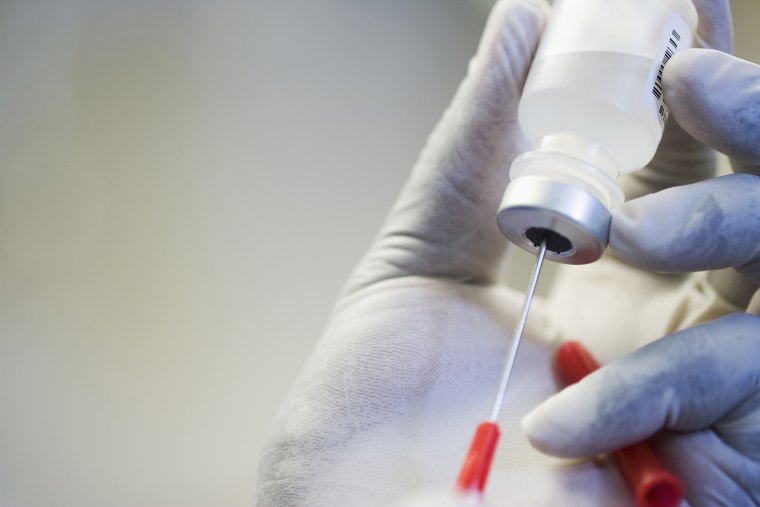Researchers who have harnessed the body's immune system to fight cancer have found a way to make the approach work even better, using an ordinary tetanus vaccine.
They used their double-vaccine approach to greatly lengthen the lives of patients with one of the deadliest types of cancer — the brain tumor glioblastoma.
"Patients with glioblastoma usually survive for little more than one year. However, in patients who received the immunotherapy, half lived nearly five years or longer from their diagnosis," said Dr. John Sampson of Duke University Medical Center, who oversaw the study.
The team has been using what is known as immunotherapy to fight glioblastoma. They remove some of the patient's own immune cells, train them to recognize the tumor, and then re-inject them. It's a hit-and-miss approach being used against a range of cancers.
With glioblastoma's there's a trick — the tumors collect large amounts of a virus called cytomegalovirus or CMV that infects many people, usually without causing symptoms.
It's not clear if CMV actually causes the cancer, but an anti-tumor vaccine that targets CMV sends immune cells right to the brain tumor. This treatment alone has helped patients live longer — from an average of 12 to 14 months for patients who get chemotherapy alone, to more than 18 months with the immunotherapy.
That's not long enough, though, and the team was looking for ways to activate even more tumor-killing cells. They decided to try tetanus, which is a vaccine that most Americans have received, safely, and one that activates a strong immune response.
"It's the same tetanus booster you get when you step on a rusty nail and have to go into the ER and get a shot," said Dr. Kristen Batich of Duke University, who helped lead the study published in the journal Nature.
"So we enrolled 12 patients that we treated who underwent their standard care chemotherapy and radiation, which was done after their surgery, and then from there on they received our immunotherapy vaccine," she told NBC News.
The effects were remarkable. Patients who got the tetanus booster lived more than two years on average — about 26 months.
Read more at NBC News
